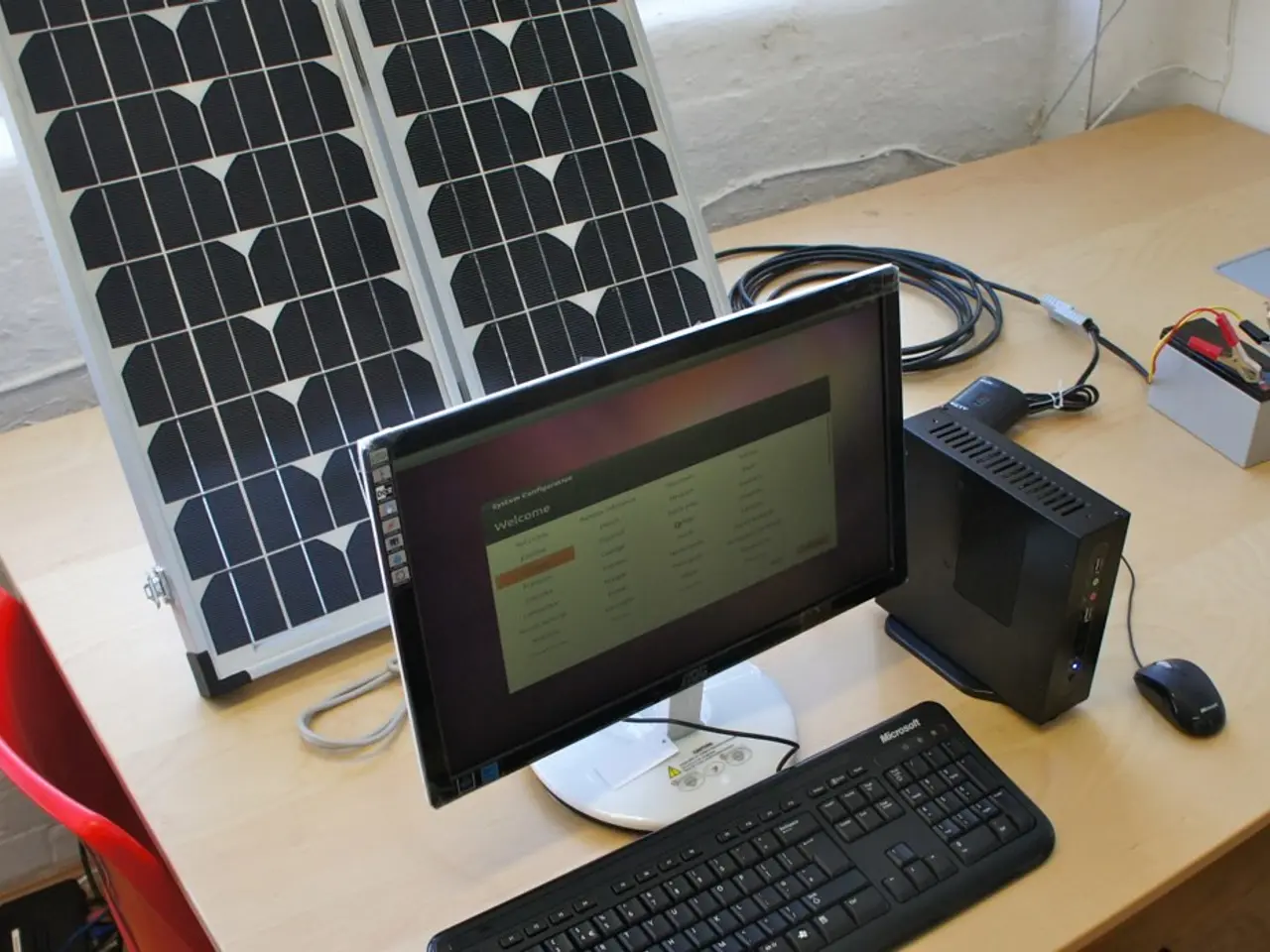Solar Panel Chargers' Hidden Expenses: Mining Operations, Production, and Beyond
In the pursuit of a greener future, solar panels have emerged as a crucial component. However, the manufacturing, transportation, and disposal of these panels come with their own set of environmental and social challenges.
Transporting raw materials and finished panels across long supply chains adds to fossil fuel consumption and emissions, contributing to greenhouse gas emissions. The extensive logistics network requires significant energy input, primarily from fossil fuels.
The mining process for raw materials such as silicon, lithium, aluminum, copper, and rare metals can lead to ecosystem damage, water pollution, and social disruption in communities near mines. The production of solar panels for chargers involves mining these critical raw materials, often in countries with lax environmental and labor protections.
The manufacturing process, particularly for monocrystalline silicon panels, involves large energy consumption and carbon emissions, along with the use of toxic substances, especially in thin-film solar panels. This can potentially cause human and environmental harm. The thin-film solar panel manufacturing process can involve cadmium telluride, a toxic heavy metal, and its production and disposal pose serious environmental risks.
At the end of life, solar panels contain hazardous materials, and recycling options are currently limited, risking improper disposal that releases toxins into the environment. Solar panel waste, if not properly managed, can leach harmful substances into soil and groundwater.
The fragmented nature of the solar panel supply chain creates challenges in ensuring ethical sourcing and labor standards. Consumer demand for low-cost solar chargers can pressure manufacturers to cut corners on environmental and social standards.
Geopolitical factors can disrupt solar panel supply chains, leading to environmental harm and poor labor practices in vulnerable regions. Rare earth elements used in advanced solar technologies are often mined in countries with lax environmental regulations, causing severe ecological damage and human rights concerns.
Transparency in manufacturing processes and stricter environmental regulations are critical to mitigating the hidden costs of energy consumption and toxic waste generation in solar panel production. Urban mining—recovering valuable metals from electronic waste—can mitigate some environmental and social costs by reducing the need for new mining and creating green jobs, yet this practice remains underutilized for solar panel materials.
Advances in recycling technologies and responsible sourcing are important steps toward minimizing the overall impact of solar panels. It is crucial to address the environmental degradation and social issues arising from resource extraction, panel manufacture, and disposal to truly minimize the overall impact of solar panels on our planet.
- To promote a greener lifestyle, the focus on renewable tech like solar panels is essential, but their own environmental and social issues in production warrant scrutiny.
- The transportation of raw materials and finished solar panels across supply chains increases fossil fuel consumption, contributing to climate-change.
- The mining process for raw materials like silicon, lithium, aluminum, copper, and rare metals used in solar panel production can cause ecosystem damage, water pollution, and harm to communities.
- Energy-intensive manufacturing processes for solar panels lead to large carbon emissions and the use of toxic substances, potentially causing human and environmental harm.
- The disposal of solar panels, containing hazardous materials, is problematic due to limited recycling options, risking improper disposal and toxin release into the environment.
- A fragmented solar panel industry can lead to poor labor standards and unethical sourcing, with consumer demand for low-cost chargers pushing manufacturers to cut corners on environmental and social standards.
- Geopolitical factors can disrupt solar panel supply chains, leading to environmental harm and poor labor practices in vulnerable regions.
- Transparency in manufacturing processes, stronger environmental regulations, and the adoption of recycling technologies can help minimize the hidden costs of energy consumption and toxic waste generation in solar panel production, while urban mining offers potential for reducing the need for new mining and creating green jobs.




